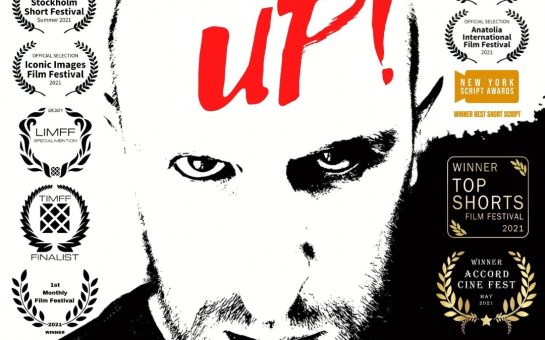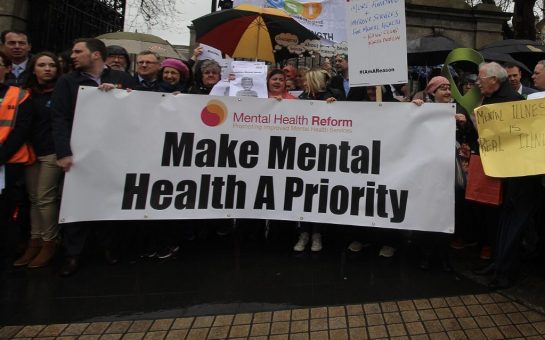An Imperial Research Group is studying the hormonal causes of sexual anxiety, but some activists and academics view the problem as being social rather than biological.
The research team at Imperial College are examining a condition called HSDD, which stands for Hypoactive Sexual Desired Disorder.
Their goal, explained Dr Edouard Mills, is to examine the role of a specific hormone, named ‘kisspeptin’ on HSDD.
The study’s recruitment website describes the condition as low sexual desire leading to stress, anxiety, sadness and relationship problems and explains that the eventual goal of the research is to develop treatments.
Dr Mills said: “We need to develop a better understanding of how and why HSDD occurs, in order to develop future treatments.”
Why is HSDD criticised by activists?
Asexual activists such as David Jay contest this being a problem needing medical intervention and instead view the stress as coming from people thinking they need to be sexually active to be healthy.
Jay described the pressure people feel to conform to specific ideas around sexuality as ‘compulsory sexuality’ and views many HSDD patients as being harmed by this pressure rather than by any biological processes of their bodies.
He said: “The existence of this disorder really flashed in the face, not only of our community, and our experiences, but a lot of the science that’s been coming out about us.
“They were people saying, I’m afraid my husband is going to leave me I’m afraid my relationship is gonna fail, I need to get in touch with my sexuality or my life is gonna fall apart.
“And if we’re treating that with a drug that’s really problematic.”
The medical status of HSDD is tenuous, in 2013 being struck from the Diagnostics and Statistics Manual (DSM) that is used near globally to define what is and is not a mental disorder.
Older versions of the DSM allowed for a diagnosis of HSDD if a partner described you as ‘frigid’ and other medical texts still make occasional reference to it.
Jay holds the belief the motivation of some groups to use the older definition is rooted in a desire to more effectively market treatments.
What do academics think?
Professor Annemarie Jutel is a scholar focusing on diagnosis, examining the motivations and consequences for defining an issue in medical rather than social terms.
She said: “Once something gets a diagnostic label it is very hard to shake the public and even the professional belief in the biological thing the label is purportedly identifying.”
She explained that taking a medical look at an issue can either help to resolve it or create new problems.
Jutel pointed to the example of PTSD, described by doctors of the First World War as ‘male hysteria’ and which carried the connotations that the soldiers were at fault for their own condition.
The change in name to PTSD helped to legitimise it and created a better understanding of what steps could be taken in treating it.
Jutel views HSDD to be an area where diagnosis fails to help, because of the tremendous number of non-biological reasons a person might experience its symptoms.
She added: “Diagnosis is really important that we cling to it to a fault and so what’s happened here, I think, is that the pharmaceutical industry saw an opportunity.
“They’re really eager to get the pink Viagra.”
A person’s interest in sex is far more likely, she explained, to be influenced by outside sources of stress that cannot be resolved with a pill or injection.
Jutel said: “The next time that you are on public transport, or somewhere with lots of advertising, examine how many of the ads are offering some form of medicine and whether the issues they promise to solve might be rooted outside of medicine.”
The history
Jay’s concern about the medicalisation of a sexual orientation is founded in a historical trend.
Large swathes of the LGBT community have seen similar medicalisation, and Jay explained how he wanted to avoid this from the outset when asexuality first began getting media attention in the 2000s.
The American Psychiatric Association did not delist homosexuality as a mental disorder until 1973.
Jutel explained that the intersex community had attempted a near opposite approach to find legitimacy through medical recognition of their situation, but that it backfired at the time by reducing their identity to a disease.
For HSDD, there have been previous attempts to medicalise the disinterest in sex to create a market for treatments.
Medications such as Flibanserin have been described as ‘women’s Viagra’ and have been opposed by both activists and academics.
Flibanserin has not received approval for use in the United Kingdom.
Neither Jutel or Jay view their positions as anti-science or anti-medicine.
Jay works with the Center for Humane Technology, an organisation advocates for the ethical use of information technologies such as social media.
Jutel is an active researcher at the University of Wellington, Victoria.




